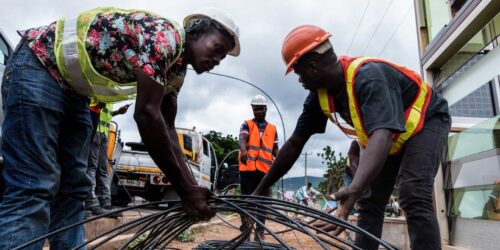
Niger State has taken a major step toward enhancing digital infrastructure by waiving right-of-way (RoW) fees for fibre optic cable installations. This move positions it as the twelfth Nigerian state to implement such a policy, aimed at incentivising telecom operators and expanding internet connectivity, especially in underserved areas.
The policy was officially formalised through a government gazette dated September 2, 2024, and signed by Governor Muhammed Umar Bago. It reflects the state’s broader strategy to attract private sector investment, bridge the digital divide, and support the digital transformation of public services.
Under the new guidelines, telecommunications companies are now required to pay only a one-time, non-refundable application fee of ₦500,000 (approximately $311.80). This fee covers both the initial network deployment and all future network expansions within the state.
Suleiman Isah, the Commissioner for Communications Technology and Digital Economy in Niger State, explained that once an operator secures the permit, they are not required to make additional payments for network expansions. “Even if a company obtained its permit a decade ago, there is no need to repay—only a notification to the state is required,” he said.
Historically, RoW fees—imposed by state governments for laying fibre optic cables—have been a significant obstacle to broadband growth in Nigeria. These fees create high costs for telecom operators such as MTN Nigeria, Airtel Africa, and Globacom, slowing infrastructure rollout and network penetration.
Efforts to harmonise these charges date back to 2013, when the National Executive Council (NEC) recommended a standard rate of ₦145 ($0.09) per linear metre. Despite this, adoption has remained uneven, with only about 35% of Nigerian states implementing the reduced fees.
Niger State, which already boasts 3,681.66km of fibre infrastructure—the fifth highest in the country—now joins other progressive states such as Zamfara, Katsina, Anambra, Kebbi, Nasarawa, Bauchi, Adamawa, Kaduna, Ekiti, Imo, and Plateau, all of which have either slashed or eliminated RoW fees to encourage broadband development.
“A zero-cost RoW policy will draw significant investments from telecom companies, improve coverage in remote communities, foster job creation, and fuel economic growth,” Governor Bago stated in the gazette.
With this initiative, Niger State aims to close the digital connectivity gap and create a more conducive environment for innovation, entrepreneurship, and digital inclusion across its urban and rural areas.


